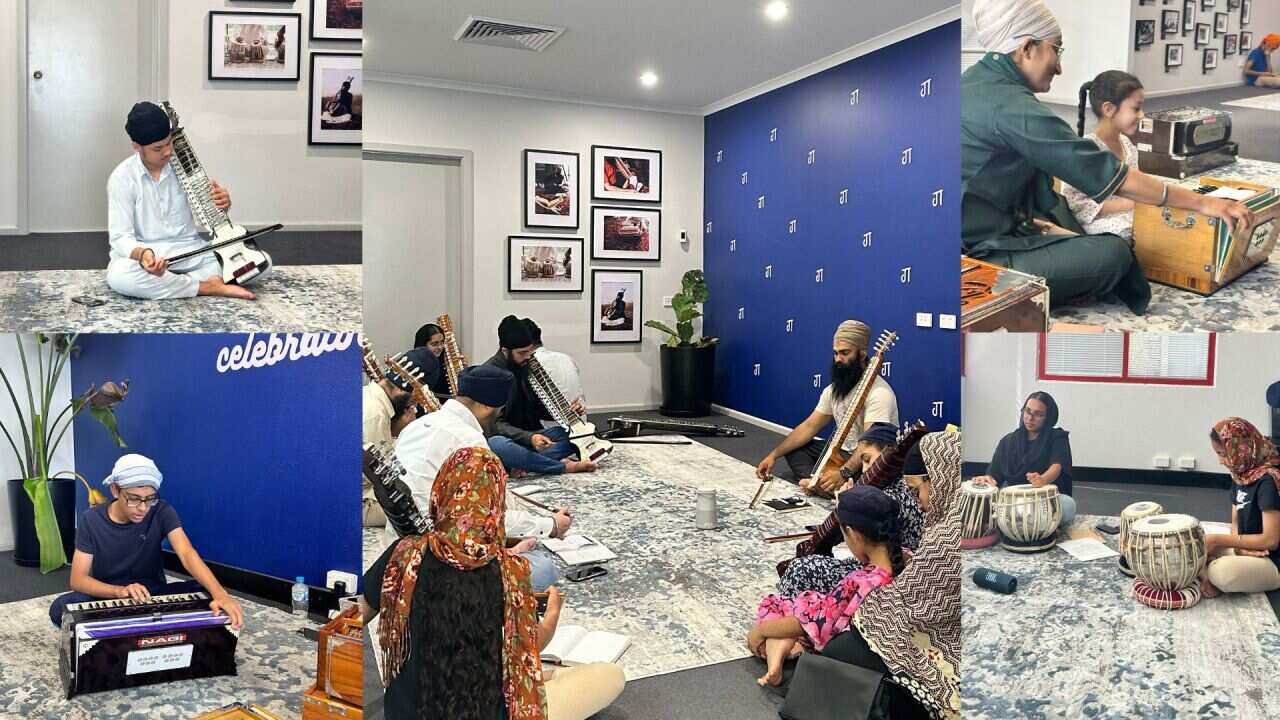Dr Balwinder Singh, who has received many accolades for his excellence in agricultural science, expressed his gratitude over his recent felicitation from CSU, which awarded him with the 2021 Alumnus of the Year title in Professional Achievement (Research) as part of its Foundation Day celebrations on 21 July.
"It is a great gesture from the university for recognising my research contributions.
"This award not only boosts my confidence but has also given me an incentive for conducting further research that would have a direct impact on the lives of millions of farming families in India and other countries,” the researcher said in an interview with SBS Punjabi.
Highlights:
- Dr Balwinder Singh works at the International Maize and Wheat Improvement Center (CIMMYT)
- Dr Singh completed his doctorate in agricultural science from Charles Sturt University, Wagga Wagga
- He was awarded ‘Alumnus of the Year’ on CSU’s Foundation Day celebrations on 21 July
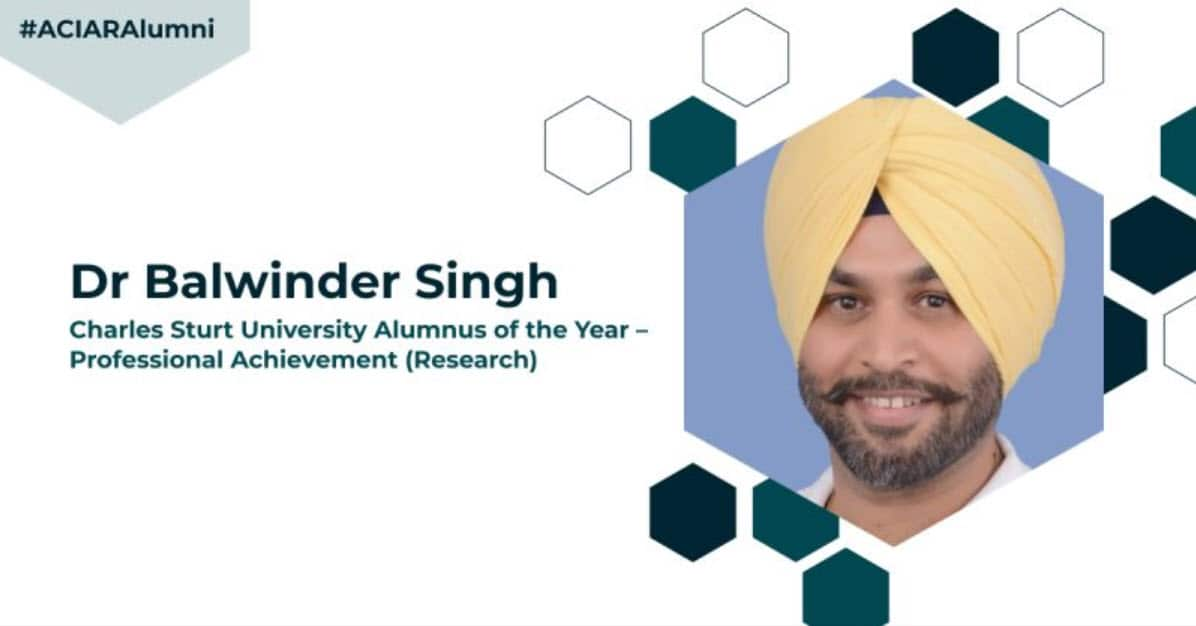
Source: Supplied by Dr Singh
At the centre, he leads research projects in South Asian countries, combining field experimentation, conducting participatory engagement with farmers and exploring the usage of modern tools to boost the region's productivity and address sustainability challenges in growing cereal crops.
He said the primary objective of his research is to develop technologies and strategies to address agricultural and food security challenges in South Asia.
"I am working on many projects that are focused on natural resource conservation and addressing different issues like labour shortages, water scarcity, soil fertility loss, land degradation, rising temperatures and other impacts from climate change in cropping systems," he said.
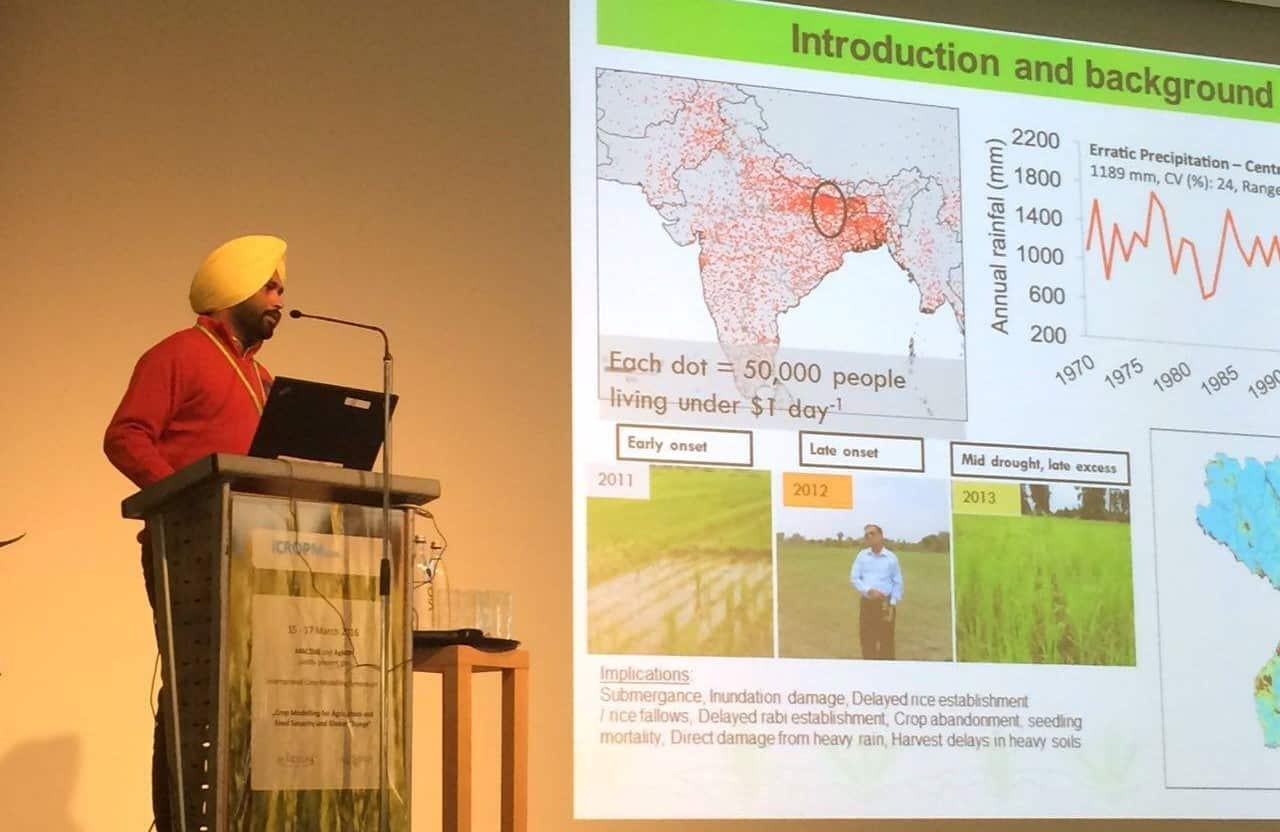
Dr. Balwinder Singh presenting his research work at a conference in Berlin, Germany. Source: Supplied by Dr Singh
After completing his bachelor's and master's degrees in agricultural science from Punjab Agricultural University in Ludhiana, in north India, Dr Singh arrived in Australia in 2006 to explore and widen his scientific vision.
Talking about his journey, the researcher said he had a life-changing experience after receiving the John Allwright fellowship.
"It was an excellent opportunity that I still cherish. It helped me look beyond the horizon. During this time, I had the opportunity to learn from world-renowned scientists in my field," he said.
After completing his PhD in Australia, Dr Singh returned to India to serve his community.
"My intentions were clear from the beginning. I wanted to return to India to serve my country. I believe in giving back to the community, so I decided to return and started working to benefit my very own - farming community.
"It gives me immense joy and satisfaction to work for my country and at CIMMYT. Our region has produced world-renowned agricultural scientists, and I am here to follow in their footsteps," he added.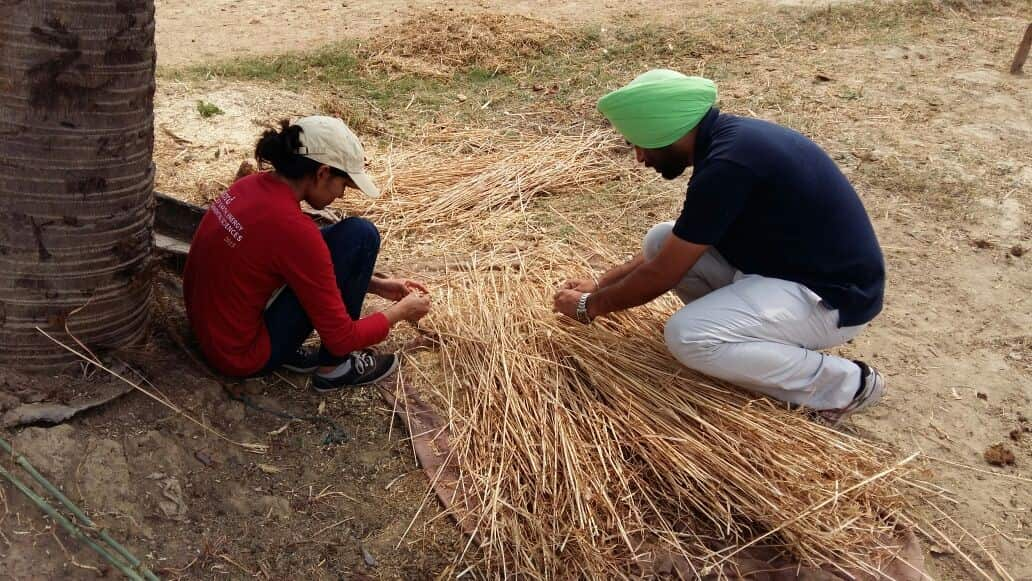 A passionate farmer-turned-scientist
A passionate farmer-turned-scientist

Dr. Balwinder Singh examining wheat crop during harvest in Arrah, Bihar, India Source: Supplied by Dr Singh
Dr Singh hails from Punjab in north India, a state known for its high agricultural yield within the Indian subcontinent.
His passion for agricultural science stems from his ancestors, who also worked in the fields.
“I was lucky to be born and brought up in a region known as the food bowl of India. I belong to a farming family that is proud of passing on its farming skills from one generation to the next,” he said.
Dr Singh's research is published in many scholarly journals, including Nature and Science.
In addition, he has made presentations at various international conferences, workshops and seminars around the globe.
He is currently working on various projects, including research on groundwater depletion issues in Punjab and Haryana, reducing air pollution from burning rice residue, and increasing crop productivity in Bihar and eastern Uttar Pradesh.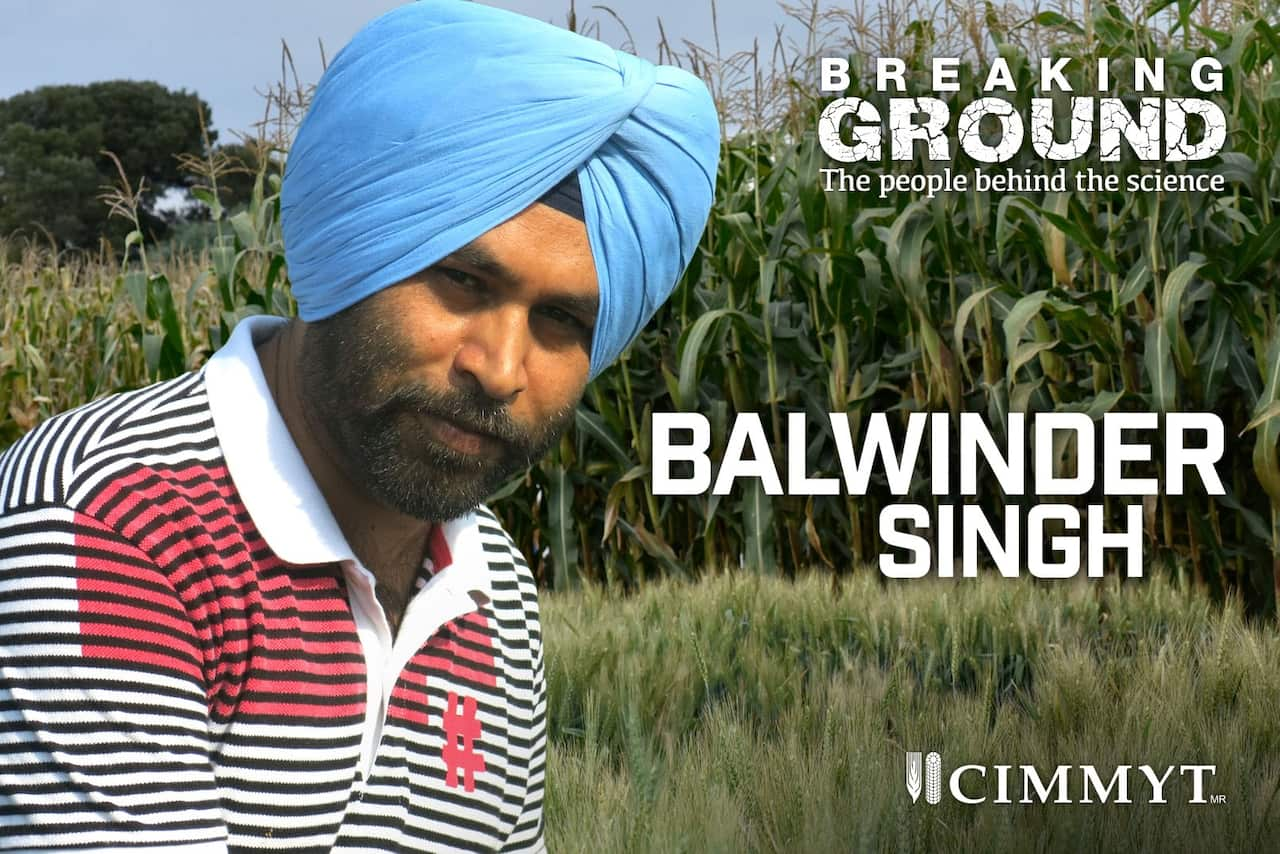 Explaining his scientific methods, Dr Singh said that he uses modern research tools like crop simulation models for small landholders in South Asia to prepare them for future climate-related and unexpected challenges.
Explaining his scientific methods, Dr Singh said that he uses modern research tools like crop simulation models for small landholders in South Asia to prepare them for future climate-related and unexpected challenges.

"India is the world's second-largest producer of wheat and rice and is home to more than 600 million farmers. I am grateful that my scientific research can benefit farming communities that have been struggling for survival.
"Farmers are the most vulnerable people within our community, and if we don't have farmers, we would have no food. Therefore, I feel I must serve them so that they can serve us," he said.
To listen to the full interview with Dr Singh, click here or on the player at the top of the page.


